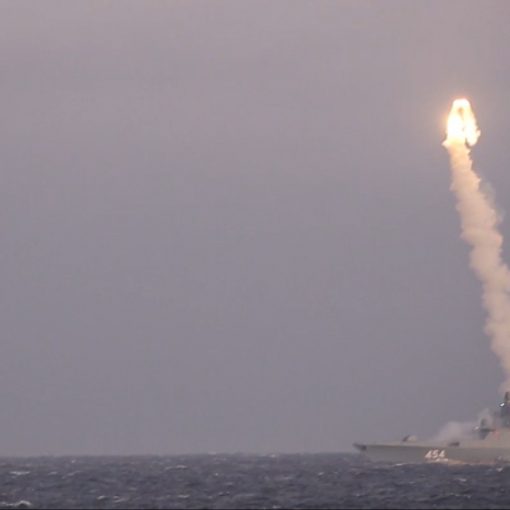Mark J. Valencia, a maritime policy analyst based in Kaneohe, Hawaii, has written an important essay that has been published on-line by “Nautilus,” the forum of the Northeast Asia Peace and Security Network. Valencia’s essay, entitled “Not an Impeccable Argument.” Among his most interesting assertions is that the American legal position is weak because it has not ratified the United Nations Convention on the Law of the Sea. He maintains that it is questionable whether the U.S. can defend the ‘rights’ of states to conduct military surveillance activities inside the EEZ of a coastal state, something he argues is “neither a fair nor reasonable interpretation of ‘due regard’ – even if the U.S. were a party to the Convention.” Valencia connects all of the actions and reactions to the construction of a Chinese submarine base at Yulin on Hainan Island. This, he contends, “is the real issue.” Unfortunately, his analysis goes no further.
Chinese submarine bases, especially for their ballistic missile boats, are in the Yellow Sea, which is a shallow and semi-enclosed area quite unsuited for operations by large submarines. Evidence indicates that the PLAN has already deployed a Jin-class (Type 094) ballistic missile submarine to the new base. Satellite photographs recorded the presence of the large submarine on 27 February (also reported in Janes' Defence Weekly).
The bathymetric chart provided shows that there are several advantages to placing a submarine base on Hainan Island: more open access to the South China Sea, proximity to the 200 metre line, a conveniently close trench of very deep water, and available support from mainland-based forces.
The chart also shows the superior position of Taiwan Island with respect to all of the same characteristics. Taiwan has the added advantage of direct access to the Pacific Ocean.
Here is a quick tabulation of just some of the many advantages to the Chinese of pushing their own interpretation of the UNCLOS definitions:
- First, they are able to advance an argument that supports their immediate purpose of excluding U.S. surveillance units from their area of interest. This is certain to resonate with other countries that are sensitive to what they view as naval incursions into their maritime areas of responsibility.
- Second, they are able to isolate the U.S. diplomatically and reduce the probability of their ever ratifying the treaty through the Chinese ‘defence’ of its provisions. This stance will undoubtedly harden the resolve of those American senators and congressmen already opposed to the agreement and will swing others over to their position, reinforcing the notion of U.S. intransigence. The predictable American reaction will play well in equally predictable Chinese media reports to their domestic audience.
- Third, the Chinese can use the same arguments to begin a long-term policy of maritime isolation towards Taiwan. The issue of ‘rights’ within their EEZ over those of a ‘non-state’ would easily transfer from one locale to the other.
- Fourth, states in the region with conflicting maritime territorial claims with China will be ‘on notice’ that the Chinese stance has hardened and their resolve to employ stronger tactics has increased.
- Fifth, in the event Taiwan should ever become part of China again, a naval base on its southwest coast would provide superlative access to the Pacific Ocean. Submarine bases in all three locations would provide the PLAN with far greater flexibility, redundancy, and strategic depth to employ as the operational situation dictates.


